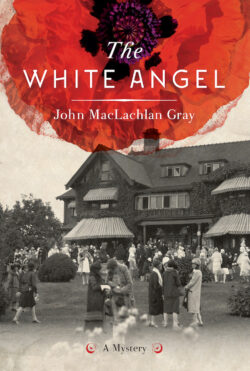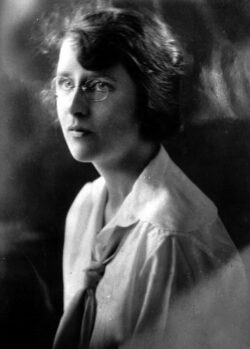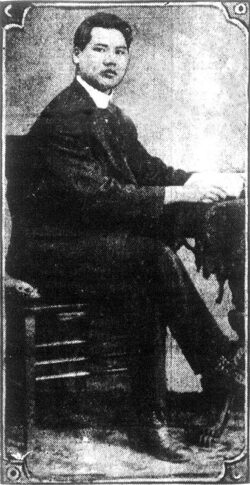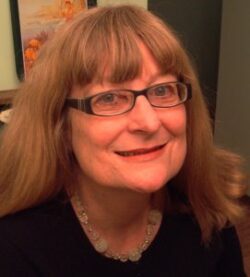#167 Janet Smith & Wong Foon Sing
The White Angel
by John MacLachlan Gray
Madeira Park: Douglas & McIntyre, 2017
$29.95 / 9781771621465
Reviewed by Ginny Ratsoy
First published Sept. 8, 2017
*
 The challenges of writing historical fiction are manifold. Writers must capture both the exterior (surface and sociological details of a time they know only through research) and the interior (characters’ mindsets that appear to be accurate reflections of the time). When that historical fiction is based on actual events, competing, even paradoxical, energies can be at play: writers must be aware of the literal details while sifting through primary sources that may themselves conflict; yet, above all, they must invent — after all, “fiction” is the operative word here. When an unsolved crime set against the backdrop of a nation, province, and city behaving badly is added to the mix, the territory can get rough.
The challenges of writing historical fiction are manifold. Writers must capture both the exterior (surface and sociological details of a time they know only through research) and the interior (characters’ mindsets that appear to be accurate reflections of the time). When that historical fiction is based on actual events, competing, even paradoxical, energies can be at play: writers must be aware of the literal details while sifting through primary sources that may themselves conflict; yet, above all, they must invent — after all, “fiction” is the operative word here. When an unsolved crime set against the backdrop of a nation, province, and city behaving badly is added to the mix, the territory can get rough.
Fortunately, we are in good hands with John MacLachlan Gray, who, as a musician, essayist, screenwriter, journalist, commentator, actor, director, and, above all, playwright and novelist, has stellar credentials for negotiating complex terrain. His most outstanding example of stupendous success treating historical events is the 1978 play, Billy Bishop Goes to War. With the practice that comes from numerous subsequent publications, including, between 2000 and 2007, four mystery-thrillers, Gray has fine-tuned his abilities to merge fact and fiction, social critique and character insight, and levity and gravity.

The historical events on which The White Angel is based began in Shaughnessy Heights in July, 1924, with the death of twenty-two- year-old Scottish maid Janet Smith. When the Point Grey constabulary entered the laundry room of the posh family home of import-export dealer Frederick Baker, they found a gun near the corpse’s hand and a bullet hole in her head.
Indications are that police and other officials were inept. The first official verdict of suicide was met with disdain by the media, the public, and, particularly, the local Scottish community. Bowing to public pressure, officials had Smith’s body exhumed and held another inquest, which concluded that Smith had been murdered, but could not ascertain by whom. The media and public remained unsatisfied, many pointing fingers at Wong Foon Sing, a houseboy employed by the Bakers, who was arrested and imprisoned, but later released because of insufficient evidence to warrant a trial.
Race, gender, and class all played significant roles in the responses to the investigations, which led to the (ultimately unsuccessful) introduction of a bill in the B.C. legislature designed to prohibit employment of white women and Asian men in the same household. According to “The Janet Smith Bill of 1924 and the Language of Race and Nation in British Columbia,” a 1999 BC Studies article by Scott Kerwin, the case was “ … a social drama for the young metropolis of Vancouver and White British Columbia” (p. 104).

Gray is as quick to distance himself from the historical case as he is adept at using its drama to reveal society at its seamiest. His Author’s Note states “any resemblance to actual persons living or dead is fragmentary and incidental” and leads readers interested in a “factual account” to the meticulous account by Edward Starkins, Who Killed Janet Smith? (Macmillan 1984; 2nd edition Anvil 2011). One of Gray’s own character’s description of the reactions to Janet’s death accurately summarizes Gray’s approach in the novel: “like flipping over a flat rock, just to see what crawls out from underneath” What crawls out from underneath in The White Angel is by turns shocking, insightful, revealing, evocative, entertaining, and even astounding.
Vancouver in 1924 is rife with corruption and inequality, some of which may resonate with Canada in 2017, although, as Gray (perhaps wryly) observes in the Author’s Note, “some progress has been achieved.” The Old Boy’s Club is alive and well. Men hold virtually all positions of power, off-duty policemen beat up political agitators, news editors are in bed with the political elite, police bow to businessmen, physicians are in the pockets of the police, and politicians make short-sighted decisions in the interests of re-election. Add overt racism, strict post-prohibition liquor laws that leads to flourishing bootlegging, the presence of the Ku Klux Klan, and the fact that women are largely restricted to the roles of housewife, housemaid, and menial cleric, and Gray as social critic has a bounty of material at hand.

Incisive though that critique is, it does not come at the expense of depth of characterization or credibility — no mean feat, considering the size and social diversity of the cast. Each major character, whether they served or not, is profoundly coloured by World War One. This collective Post-Traumatic Stress Disorder is manifested as an assortment of physical, emotional, and moral disfigurements, and an almost universal tendency toward disguise and performance.
To this reader, the show is stolen, not by the most powerful characters, but by those that are sociologically peripheral, or even outcast.
Among the most compelling of these creations is Wong Sin Chi; the houseboy obdurately reveals almost nothing of himself — a survival tactic for a Chinese immigrant in a culture both alien and hostile, where, he learns early on, “one must deceive for success.” He endures not only verbal slings, but also a brutal abduction by the Ku Klux Klan. The vitriol against the Chinese in Vancouver — from reporters, members of the public, and government officials alike — is shocking in its frequency and degree; a constable’s early observation that “Rice-eating animals is how I see them,” recurs in speech and action throughout the novel. Fear of miscegenation among whites of all classes was widespread. Wong Sin Chi unfolds, gradually, as a character whose adaptation leaves his principles intact.
For complex reasons — but largely to expose corruption in high places — an unlikely trio works to solve the crime: Howard Sparrow, undertaker and social agitator, hideously deformed by the war; his girlfriend, Mildred Wickstram, upper-class English import and sporadic transvestite; and Sparrow’s friend, Edward McCurdy, poet manqué, newspaper reporter, and lonely man. They meet in various speakeasies that showcase underground Vancouver, including Hogan’s Alley, known as “the coloured part of town,” which had become an amusement park for affluent young people from other parts of Vancouver. Their sideline positions afford the three ample opportunities to deduce while appearing detached.

Sparrow, an ambulance driver in the war, was wounded while comforting a patient and physically put back together in the Masks for Facial Disfigurement Department at London General Hospital. The reconstruction, presented in considerable detail, exemplifies Gray’s prose at its strongest: no-holds barred, bristly, and lovely in its candour. The new person that emerges is a stutterer who, despite (or perhaps because of) damaged eyesight is a seer with a thirst for justice that takes precedence over friendship and love.
As Sparrow says, women, when forced to relinquish their jobs when men returned from the war, “went underground and became dangerous.” Mildred, a fighter for women’s rights, uses her training in an English girls’ school and the war to assume various guises (including male, to infiltrate a men’s club) and to make the best of a job for which she is overly qualified. As a switchboard operator at the Hotel Vancouver, she amuses herself by eavesdropping, and reporting, on the exchanges of the political and business elite over the case. Mildred, top brain of a pretty brainy trio, is not atypical of Gray’s female cast members: self assured, wily, under- employed truth seekers, they are a far cry from the dainty-things-in- need-of-protection societal forces construe them as.
 McCurdy, not above masquerading as Sparrow’s assistant undertaker to get story leads, owes his damage, in part, to not having served in the war — being refused because of extreme shortsightedness, which had earlier caused him to be bullied, and was largely responsible for his embracing poetry: “since then, he was tried to style himself after James Joyce, with limited success” (p. 13). McCurdy’s wry and insightful accounts of the establishment’s bungling of the case lead to his being manipulated by his editor, and abducted and drugged by others when he gets uncomfortably close to the truth.
McCurdy, not above masquerading as Sparrow’s assistant undertaker to get story leads, owes his damage, in part, to not having served in the war — being refused because of extreme shortsightedness, which had earlier caused him to be bullied, and was largely responsible for his embracing poetry: “since then, he was tried to style himself after James Joyce, with limited success” (p. 13). McCurdy’s wry and insightful accounts of the establishment’s bungling of the case lead to his being manipulated by his editor, and abducted and drugged by others when he gets uncomfortably close to the truth.
With all the hallmarks of a good “true crime” novel — a plausible, stirring plot, a dreadful death, a complex web of clues, a host of suspects, and a satisfying solution built up to, but not fully revealed until the final pages — The White Angel succeeds on the suspense level. Where John MacLachlan Gray’s latest work shines, though, is in its ability to capture a time and place — replete with enduring personalities — with unabashed, yet life-affirming, wit and honesty.
*

Ginny Ratsoy is an Associate Professor of English at Thompson Rivers University specializing in Canadian literature. Recent courses have included British Columbian Literature and The Environment in Canadian Literature. Among her publications are Playing the Pacific Province (Playwrights Canada Press, 2001, co-edited with James Hoffman) and Theatre in British Columbia (Playwrights Canada Press, 2006). She has also co-edited (with W.F. Garrett-Petts and James Hoffman) Whose Culture Is It, Anyway? Community Engagement in Small Cities (New Star Books, 2014), and published articles on alternative pedagogies in university education, and theatre, playwrights, and small cities in British Columbia.
*
The Ormsby Review. More Books. More Reviews. More Often.
Publisher and Editor: Richard Mackie
The Ormsby Review is a journal service for in-depth coverage of B.C. books and authors. The Advisory Board consists of Jean Barman, Wade Davis, Robin Fisher, Cole Harris, Hugh Johnston, Patricia Roy, Maria Tippett, and Graeme Wynn. Scholarly Patron: SFU Graduate Liberal Studies. Honorary Patron: Yosef Wosk. Provincial Government Patron since September 2018: Creative BC
“Only connect.” – E.M. Forster
One comment on “#167 Janet Smith & Wong Foon Sing”
Comments are closed.